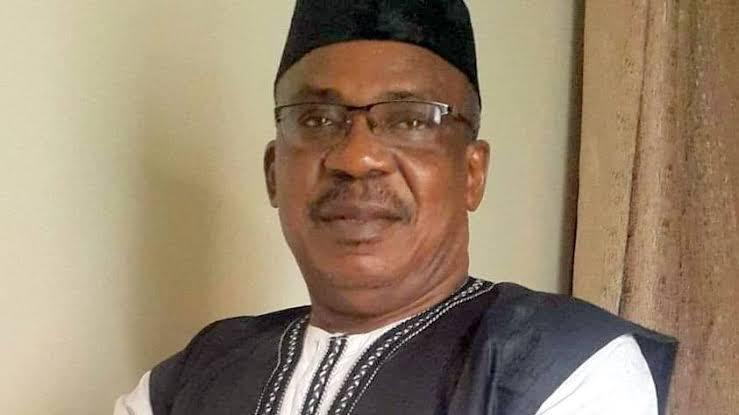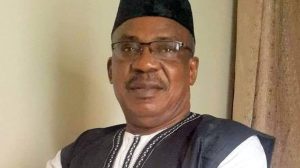
Furoebi Akene, Environmentalist
Climate Change: Environmentalist urges FG, States to tackle rising sea levels

Mr Furoebi Akene, an environmentalist has called on the Federal Government and states along the Atlantic coastline to save coastal communities from being submerged due to alarming rate of rising sea levels caused by climate change.
Akene, a former Commisioner for Lands and Survey in Bayelsa and Executive Director, Centre for Environmental Preservation and Development (CEPD) advocated an urgent action to curb impending disaster.

Akene’s position is contained in a Save Our Soul (SOS) message to President Bola Tinubu and Governors of all Coastline States.
According to the message, thel threats to life and properties across coastline settlement and nearby communities lying below sea levels as a result of climate change is clear for all to see.
Akene said that there is an impending disastrous catastrophe before coastal communities and other settlements around the coast as a result of the rising sea level that is rising above the projected rate.
“To this end, the Federal Government and the Governments of the coastal states should have a very strong synergy and urgently respond to the unprecedented and devastating impacts of rising seas before it is too late.
“The saying goes, “It is too late to sit in a seismic class, the morning after the earthquake”.
“The United Nation (UN) Secretary-General Antonio Guterres on Aug 27 issued a global SOS from the Pacific Island nation of Tonga at a meeting of the Pacific Islands Forum.
“The warning in the Tongan capital Nukuʻalofa,was with a plea to the world to massively increase finance and support for vulnerable countries in grave danger of the human-caused climate crisis,” Akene stated.
According to the environmentalist, the United Nations chief warned that “The ocean is overflowing; this is a crazy situation: Rising seas are a crisis entirely of humanity’s making.
“A crisis that will soon swell to an almost unimaginable scale, with no lifeboat to take us back to safety.”
Akene explained that climate change and temperature rise are a global problem traced to burning fossil fuels that release heat-trapping pollution.
According to him, Nigeria is one of the major contributors to this global malady.
He also noted that the Intergovernmental Panel on Climate Change concluded unequivocally in 2021, that humans have caused the climate crisis.
According to Akene , the widespread and rapid changes have already occurred, and some of them irreversibly.
The environmentalist pointed out that all the communities in the Atlantic coast from Lagos to Calabar are in serious danger that need urgent attention.
“It is not Lagos, Warri, Burutu, Port Harcourt and Calabar affairs only but, the entire Atlantic coastal environment.
“In Bayelsa State, Odioma, Okpoama, Brass Island, Egbabeleu, Akassa, Sangana, Koluama, Foropa, Ekeni, Ezetu, Amatu, Agge and a lot of communities on the coastline are already endangered.
“This to the extent that they are almost completely washed away by the marauding violent waves from the scourge of the Atlantic Ocean.
“The situation is not limited to the coastline communities but up to tens of kilometres into the hinter lands.
“In Bayelsa State, communities like Odioma, suffered much devastation last year as a result of the scourge, promises were made but were ended as campaign promises without implementation,” Akene said..
He also recalled that other settlements like Koluama, Sangana, furopa, Okpoama had their turns also in different times.
He recommended the setting up early warning systems for the vulnerable coastal communities.
He urged the two tiers of government to Increase funding for resilience and sustainable adaptation with erudite professionals in the various fields to actualise the needed resilience and sustainability.
“The increasing devastating floods annually particularly in the deltaic region of the Niger Delta requires the setting up of a special taskforce or agency.
“The team should be made up of technocrats and professionals to conduct serious research on hydrodynamics and hydrometeorological hazard and other issues to proffer solutions to save the vulnerable communities and the environment.
“They should conduct critical high resolution spatiotemporal investigations to ascertain the rate and extent of oceanic incursion over the past decade and beyond,” he said.



